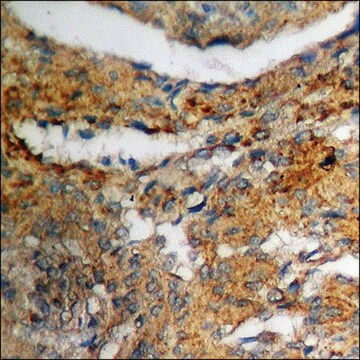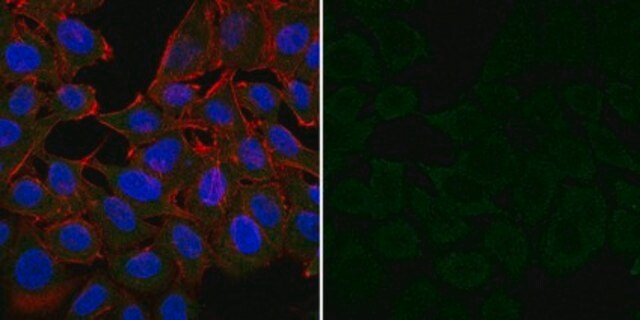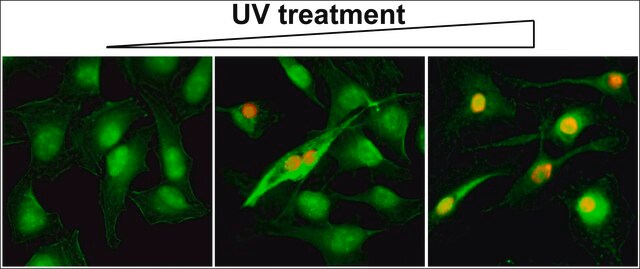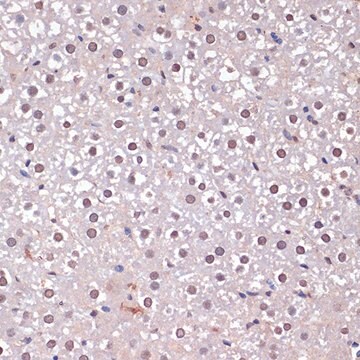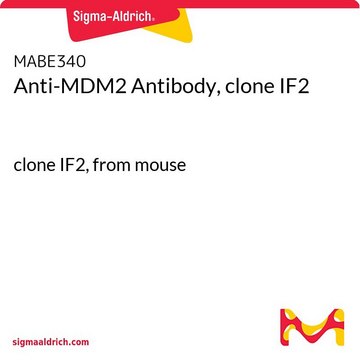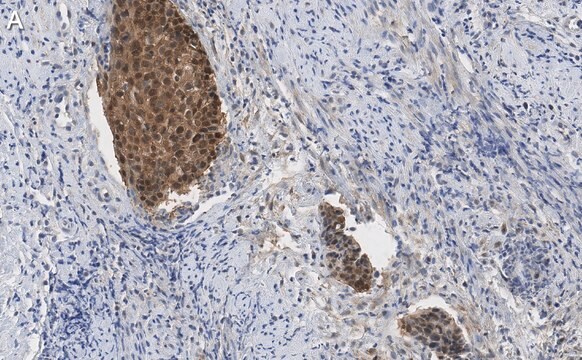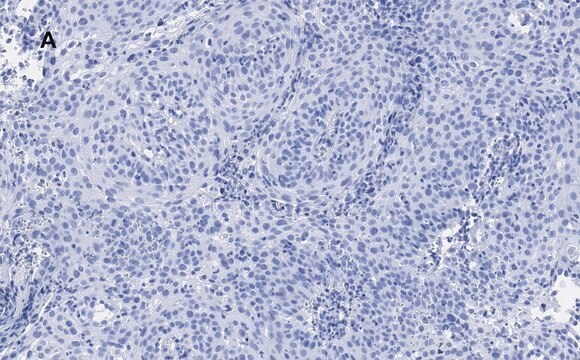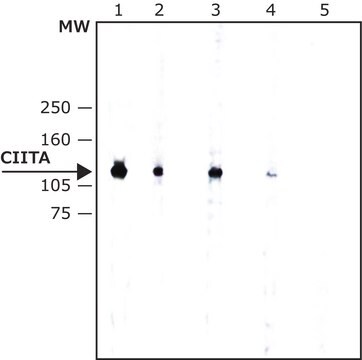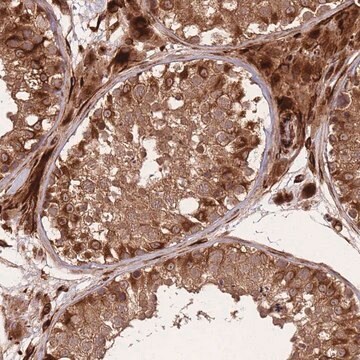MABE340-AF555
Anti-MDM2 Antibody, clone IF2, Alexa Fluor™ 555 Conjugate
clone IF2, from mouse, ALEXA FLUOR™ 555
Sinónimos:
E3 ubiquitin-protein ligase Mdm2, Double minute 2 protein, Hdm2, Oncoprotein Mdm2, p53-binding protein Mdm2
About This Item
Productos recomendados
biological source
mouse
Quality Level
conjugate
ALEXA FLUOR™ 555
antibody form
purified antibody
antibody product type
primary antibodies
clone
IF2, monoclonal
species reactivity
human
technique(s)
immunocytochemistry: suitable
isotype
IgG2b
NCBI accession no.
UniProt accession no.
target post-translational modification
unmodified
Gene Information
human ... MDM2(4193)
General description
Specificity
Immunogen
Application
The unconjugated antibody (Cat. Nos. MABE340 & OP46) is shown to be suitable also for immunohistochemistry and Western blotting applications.
Epigenetics & Nuclear Function
Apoptosis - Additional
Quality
Immunocytochemistry Analysis: A 1:100 dilution of this antibody detected MDM2 in HepG2 cells.
Target description
Physical form
Storage and Stability
Other Notes
Legal Information
Disclaimer
¿No encuentra el producto adecuado?
Pruebe nuestro Herramienta de selección de productos.
Storage Class
12 - Non Combustible Liquids
wgk_germany
WGK 2
Certificados de análisis (COA)
Busque Certificados de análisis (COA) introduciendo el número de lote del producto. Los números de lote se encuentran en la etiqueta del producto después de las palabras «Lot» o «Batch»
¿Ya tiene este producto?
Encuentre la documentación para los productos que ha comprado recientemente en la Biblioteca de documentos.
Nuestro equipo de científicos tiene experiencia en todas las áreas de investigación: Ciencias de la vida, Ciencia de los materiales, Síntesis química, Cromatografía, Analítica y muchas otras.
Póngase en contacto con el Servicio técnico